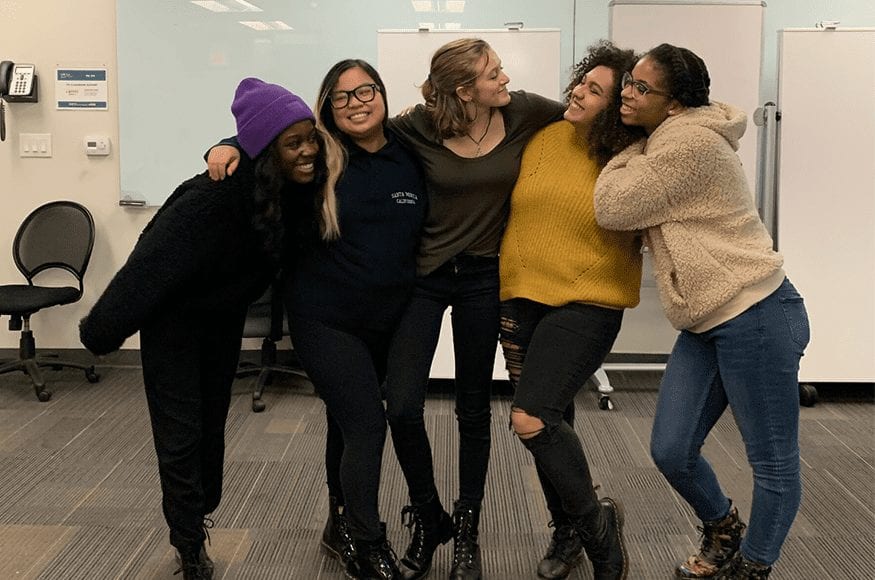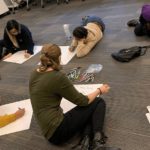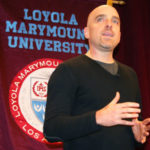
Exploring difficult themes and complex social issues has always been central to the mission of the LMU Theatre Arts Department. In response to a request made by students for more theatre for social change activities, Theatre Arts assistant professor Daphnie Sicre and professor and chair Katharine Noon conceived two performance workshops focused on addressing the complex issues of race and gender in today’s political climate.
Workshop #1: Social Justice & Awareness
In creating the workshops, Sicre used Augusto Boal’s Theatre of the Oppressed techniques as tools for diving into difficult conversations on race and gender. With a Ph.D. from New York University focusing on Afro-Latinx performance and having published many texts centered around cultural responsibility in performance, Sicre is ideally-suited to create this type of educational programming. The first workshop explored the definition of social justice and the ways in which it is intertwined and intersectional.
“The students explored various situations where women had been detained, and brutalized. We also explored avenues of change, within ourselves, our communities, and in society,” said Sicre. “Possibly the most important understanding the students walked away with from the workshop with, was discovering that we cannot work together to end life threatening issues, if we are not fully accepting of one another’s races and each other’s personal experiences.”
Workshop #2: Stereotypes & Self-Reflection
The first workshop was designed to test the waters, but positive student feedback afterward unanimously suggested hosting a second workshop. “This second workshop was more interpersonal,” said Sicre. “I designed it as an inner exploration of self, and what we can do to take care of ourselves when we are dealing with issues of race and gender oppression, especially everyday stereotypes.”
These ideas were facilitated through a series of Theatre of the Oppressed games and tableaux, in which students considered stereotypes and how to fight them. Sicre and the students also explored the nature of body shaming both online and in person and how to stand against it. For example, they changed the language of a woman being described as “bossy” and “angry” to “confident” and “outspoken”, breaking historical gender stereotypes.
Future Workshops
The two workshops were very successful, allowing students in the Theatre Arts Department to explore the oppression faced at intersectionality’s of race and gender. Sicre hopes to conduct two more workshops in the spring, and to keep creating safe spaces for students and faculty to engage in topics of race, gender and social change.







